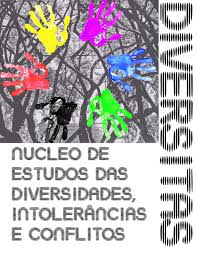O ativismo digital da Justiça Social das Mulheres Afro-Brasileiras youtubers
Resumo
Palavras-chave
Texto completo:
PDF (English)Referências
Arias, Omar, Gustavo Yamada, and Luis Tejerina. 2004. “Education, Family Background and Racial Earnings Inequality in Brazil” International Journal of Manpower 25 (3/4): 355–374.
Bailey, Stanley, Mara Loveman, and Jeronimo Muniz. 2013. “Measures of ‘Race’ and the analysis of racial inequality in Brazil.” Social Science Research 42(1): 106–119.
Bairros, Luiza. 1991. “Mulher Negra: O Reforço da Subordinação.” In Desigualdade Racial no Brasil Contemporâneo, ed. Peggy Lovell, 177–193. Belo Horizonte: MGSP Editores, Ltda.
Bonilla, Yarimar and Jonathan Rosa. 2015. “#Ferguson: Digital protest, hashtag ethnography, and the racial politics of social media in the United States.” DOI: 10.1111/amet.12112
Brock, André. 2012. “From the Blackhand Side: Twitter as a Cultural Conversation” Journal of Broadcasting & Electronic Media: 529-549. http://dx.doi.org/10.1080/08838151.2012.732147
Caldwell, Kia. 2007. Negras in Brazil: Re-envisioning Black Women, Citizenship, and the Politics of Identity. New Brunswick: Rutgers University Press.
Campante, Filipe, Anna R. V. Crespo, and Phillippe G. P. G. Leite. “Desigualde Salarial entre Raças no Mercado de Trabalho Urbano Brasileiro: Aspectos Regionais.” Revista Brasileira de Economia 58(2):185–210.
Campos, Ana Cristina. 2016 “IBGE: Celular se consolida como o principal meio de acesso à internet no Brasil.” December 22, 2016 http://agenciabrasil.ebc.com.br/geral/noticia/2016-12/ibge-celular-se-consolida-como-o-principal-meio-de-acesso-internet-no-brasil (accessed on September 6, 2017).
Carneiro, Sueli. 2010. “Insumias: Racismo, Sexismo, Organizacion Politica y Desarollo de Mujer Afrodescendiente.” Lima: CEDET, Centro de Desarrollo Étnico.
Carneiro, Sueli. 2003. “Mulheres em Movimento.” Estudos Avançados (17): 49. http://dx.doi.org/10.1590/S0103–40142003000300008 (accessed July 8, 2017).
Collins, Patricia Hill. 1990. Black Feminist Thought: Knowledge, Consciousness, and the Politics of Empowerment. London: Harper Collins.
Cox, Jonathon. 2017. “The source of a movement: making the case for social media as an informational source using Black Lives Matter.” Ethnic and Racial Studies 40:11, 1847-1854, DOI: 10.1080/01419870.2017.1334935
Crenshaw, Kimberlé. 1991.“Mapping the Margins: Intersectionality, Identity Politics, and Violence against Women of Color.” Stanford Law Review 43(6): 1241–1299.
Donovan, Roxanne and Linsey M. West. 2014. “Stress and Mental Health: Moderating Role of the Strong Black Woman Stereotype.” Journal of Black Psychology 41 (4): 384-396.
Florini, Sarah. 2014. “Tweets, Tweeps, and Signifyin’ Communication and Cultural Performance on “Black Twitter.” Television & New Media 15(3): 223–237.
Freyre, Gilberto. 1956. The Masters and the Slaves: (Casa Grande & Senzala) A Study in the Development of Brazilian Civilization. New York: Knopf.
Goldstein, Donna M. 1999. “’Interracial’ Sex and Racial Democracy in Brazil: Twin Concepts?” American Anthropologist 101 (3): 563–578.
González, Lélia. 1988. “For an Afro-Latin Feminism.” Confronting the Crisis in Latin America: Women Organizing for Change. Isis International & Development Alternatives With Women For a New Era: 95–101.
Gutiérrez y Muhs, Gabriella, Yolanda Flores Niemann, Carmen G. González, and Angela P. Harris. 2012. Presumed Incompetent: The Intersections of Race and Class for Women in Academia. Logan: Utah State University Press.
Guy-Sheftall, Beverly. 1995. Words of Fire: An Anthology of African-American Feminist Thought. The New Press.
Hasenbalg, Carlos and Nelson do Valle Silva. 1988. Estrutura Social, Mobilidade e Raça.
Rio de Janeiro: Instituto Universit́ario de Pesquisas do Rio de Janeiro.
Hordge-Freeman, Elizabeth. 2015. The Color of Love: Racial Features, Stigma, and Socialization in Black Brazilian Families. Austin: The University of Texas Press.
Jackson, Sarah J. and Brooke Foucault Welles. 2016. “#Ferguson is everywhere: Initiatiors in Emerging Counterpublic Networks.” Information, Communication & Society 19(3): 397-418.
Johnson, ReAndra, "Communities of Resistance: Welfare Queens and the Infrapolitics of Black Hair Tutorials on Youtube" (2017). Scripps Senior Theses. 918.
http://scholarship.claremont.edu/scripps_theses/918
Lamont, Michèle, Graziella Moraes Silva, Jessica S. Welburn, Joshua Guetzkow, Nissim Mizrachi, Hanna Herzog, and Elisa Reis. 2016. Getting Respect: Responding to Stigma and Discrimination in the United States, Brazil, and Israel. Princeton: Princeton University Press.
Layton, Matthew and Amy Smith. 2017. “Is it Race, Class, or gender? The Sources of Perceived Discrimination in Brazil.” Latin American Politics and Society 59 (1): 52-73.
Lisboa, Vinícius. “Renda dos Negros Cresce, mas Não Chegar a 60% da dos Brancos.” January 30, 2014. EBC Agência Brasil. http://agenciabrasil.ebc.com.br/economia/noticia/2014-01/renda-dos-negros-cresce-mais-que-media-mas-nao-chega-60-da-dos-brancos (accessed July 8, 2017).
Mitchell, Gladys. 2009. “Campaign Strategies of Afro-Brazilian Politicians: A Preliminary Analysis.” Latin American Politics and Society 51(3): 111-142.
Monk, Ellis. 2016. The Consequences of Race and Color in Brazil.” Social Problems 16: 413-430.
“Mulher negra ganha menos de 40% da renda de homem branco, diz Ipea.” 2016. Veja.com http://veja.abril.com.br/economia/mulher-negra-ganha-menos-de-40-da-renda-de-homem-branco-diz-ipea/ (accessed September 20, 2017).
Nascimento, Elisa. 2009. The Sorcery of Color: Identity, Race, and Gender in Brazil. Philadelphia: Temple University Press.
Neal, Mark Anthony. 2014. “Black Twitter.” AAAS Town Hall: Academics Teaching #Ferguson. Duke University’s Department of African & African American Studies. https://www.youtube.com/watch?v=Z3J9Jv91i2M (accessed on September 30, 2017)
Neal, Mark Anthony. 2011. “Black Folk on Twitter” TedxDuke. April 19. https://www.youtube.com/watch?v=GbPJNK4vw1s (accessed on September 30, 2017)
Negreiros, Dalila. Personal communication. October 1, 2017.
Osuji, Chinyere. 2013. “Racial ‘Boundary-policing’: Perceptions of Black-White Interracial Couples in Los Angeles and Rio de Janeiro.” DuBois Review: Social Science Research on Race 10 (1): 179–203.
Paixão, Marcelo, Irene Rossetto, Fabiana Montovanele, and Luiz M. Carvano. 2011. Relatório Anual das Desigualdades Raciais no Brazil; 2009–2010. Rio de Janeiro: Editora Garamond Ltda.
Paixão Marcelo and Luiz M. Carvano. 2008. Relatório Anual das Desigualdades Raciais no Brazil; 2007–2008. Rio de Janeiro: Editora Garamond Ltda.
Pardue, Derek. 2004. “Putting Mano to Music: The Mediation of Race in Brazilian Rap.” Ethnomusicology Forum 13: 253–286.
Perry, Keisha-Khan. 2013. Black Women against the Land Grab: The Fight for Racial Justice in Brazil. Minneapolis: University of Minnesota Press.
Rangel, Marcos. 2015. “Is Parental Love Colorblind? Human Capital Accumulation within Mixed Families” The Review of Black Political Economy (42): 57–86.
Sheftall, Beverly Guy. 1995. Words of Fire: An Anthology of African-American Feminist Thought. New York: The New Press.
Sheriff, Robin E. 2001. Dreaming Equality: Color, Race, and Racism in Urban Brazil. Rutgers: Rutgers University Press.
Silva, Graziella and Silva Reis. 2011. “Perceptions of Racial Discrimination among Black Professionals in Rio de Janeiro.” Latin American Research Review 46 (2): 55–78.
Smith, Christen. 2016. Afro-Paradise: Blackness, Violence, and Performance in Brazil. Champaign: University of Illinois Press.
Telles, Edward and Nelson Lim. 1998. “Does it Matter Who Answers the Race Question? Racial Classification and Income Inequality in Brazil.” Demography 35 (4): 465-474.
Weisse, Carol S.; Paul C. Sorum, Kafi N. Sanders, and Beth L. Syat. 2001. “Do Gender and Race Affect Decisions About Pain Management?” Journal of General Internal Medicine 16 (4): 211-217.
Williams, Sheri. 2015. “Digital Defense: Black Feminists Resist Violence with Hashtag Activism.” Feminist Media Studies 15 (2): 341-344.
Apontamentos
- Não há apontamentos.
ISSN eletrônico: 1984-5677
ISSN impresso: 1519-0994





















